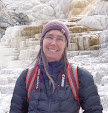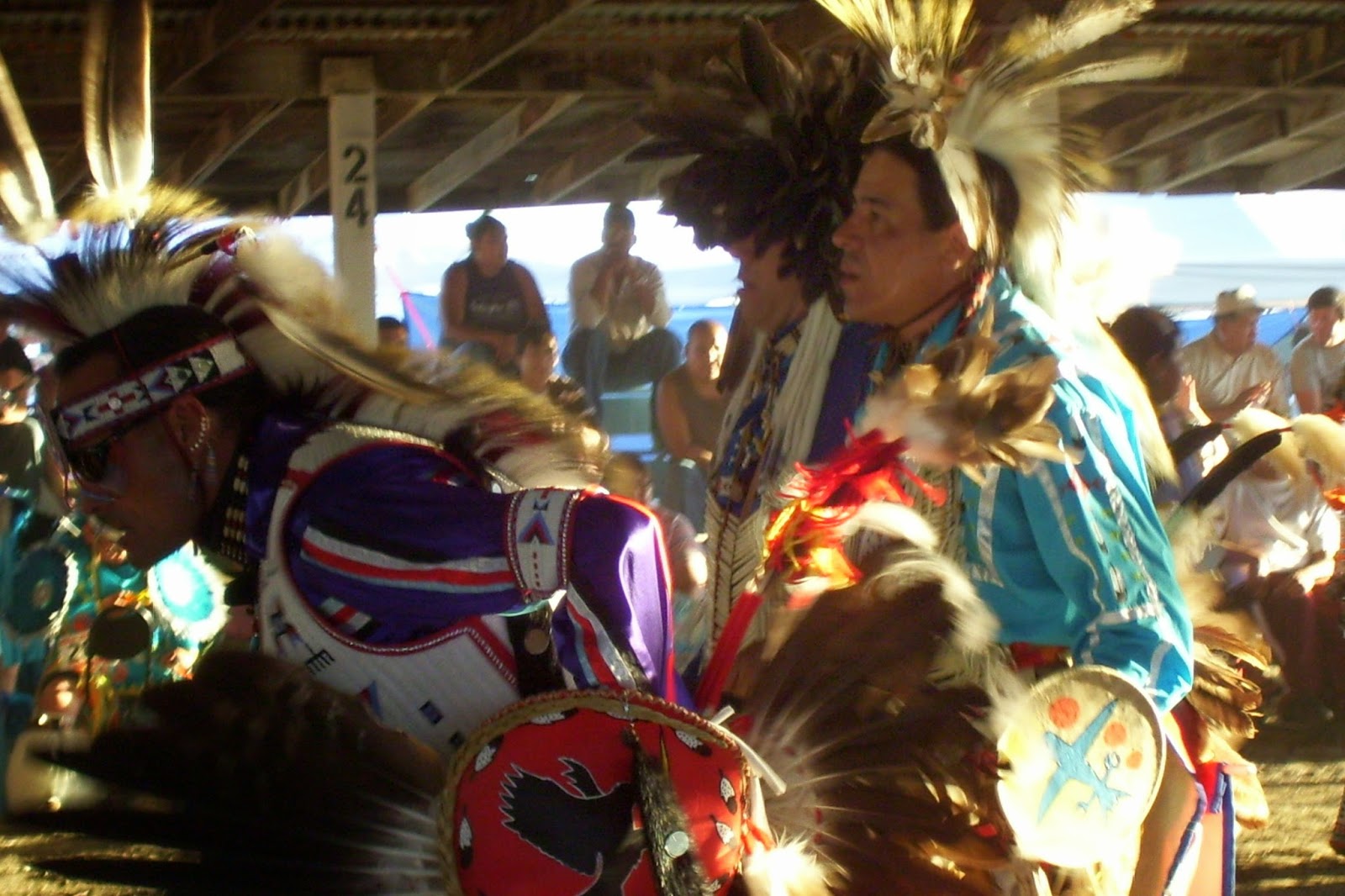We Are the
Warriors, a novel set on a
fictitious Indian reservation, is almost ready to go public. My editors and proof
readers have provided insights and suggestions, the cover is almost completed,
and Blake's story about life in Powder River is about to unfold, first as an
ebook the end of December, and in paperback after the first of the year.
We Are the Warriors’
main character, Blake, is a seventeen year-old—a white kid and avid
snowboarder— who is thrust into the middle of a plains Indian reservation.
Blake's story is a story of his fears, his search for friendship, and his gradual
understanding of those different from himself. It is a journey through his own experiences
and changing perspectives.
Living for thirty years on the Fort Peck Assiniboine and
Sioux Reservation, the images and persona of "warrior" for me have been
multifaceted. One of my early introductions to the cultural life of Wolf Point
was attending the Wild Horse Stampede, a rodeo well respected by the cowboys
and cowgirls across the West.
My first trip to the Stampede, sitting in packed stands
as the blue smoke-haze rolled by and beer amply flowed, I encountered an event that
surprised and shocked me. It began with an auctioneer leading the bidding, the
Calcutta, for the wild horse teams while standing in the back of a pick-up in
the dirt arena. As the auctioneer's voice spun by, like a train on a track, the
bids went up by hundreds of dollars, some even reaching over a thousand. The
Jackson name brought the bids in higher and higher. Later I learned the Jackson
"boys," men from the small tribal town of Frazer down the road, were
highly respected for their ability as wild horse racers.
The Wild Horse Race that occurred after the next event
was the most insane, wildly dangerous event I had ever witnessed. About eight
unbroken broncs were pinned in chutes, while three men, on the inside of the
arena, stood in front of each horse. Two men grasped a lead rope attached to
the bronc, typically very large and strong guys, and the third held a loose
saddle, usually a smaller, light-weight man.
At a signal, all eight horses are released into the arena
as the gates fly open and twenty-four men attempt to subdue the wild blood and
muscle before them. Hooves fly everywhere, men are tossed in the air, horses
run into one another. It is not a matter of if someone will get hurt, just how
badly. Some teams manage to get a saddle on their horse. The rider, clinging on
however he is able, attempts to ride the horse to the other side of the arena.
By now, half the horses have broken away from their
supposed masters and run wildly around the arena, their ropes dragging behind
them. The few horses that are saddled up with a rider, buck or run randomly. If
a rider is lucky or skilled enough to get to the other side, past the white
chalk circle, he pops off the cinch on the saddle midstride, flies through the
air, hoping to land without damage, then hauls the saddle back to the chutes.
The pandemonium in the middle of this race is hard to
describe. The sheer magnitude of possible injury unbelievable. It reminds me of
the Running of the Bulls, but ten times more unpredictable. I was shocked by
the crowd's enthusiasm and enjoyment of the event—like those waiting for a
NASCAR crash or watching those high-risk-taking videos. Many of the teams were
tribal, although not all. The most skilled and admired apparently were the
tribal teams. Rodeo is a dangerous enough event. Cowboys take on one horse, one
bull at a time and usually can see what is coming at them. This was by far more
hazardous.
As the years went by, I would at times walk out to the
concession stands during the Wild Horse Race to protest what I saw as a
macabre, violent fascination. I did not want to be part of seeing others beat
up, hurt and possibly killed. At other times I would sit there with the rest of
the crowd, relieved when it was over. One year a young tribal man, saddled up,
sliding sideways off a horse galloping around the arena at about thirty miles
an hour approached, from the opposite direction, a pack of wild horses, running
equally fast, their ropes dragging on the ground. The man, hanging sideways,
his head at the level of the horse's chest, met the chest of one of the horses
charging the opposite direction. Not good.
I'm not sure how long he was in regional medical centers
dealing with his head injury. A couple of years later I crowded into a spot in
the stands as the Calcutta for the teams began. Huh, what? His name was read as
a member of one of the wild horse teams! I don't get it. He's going out there
again!
Later, that next summer my husband and I went to the Red
Bottom Pow-wow. We wandered towards one of the benches, hoping to blend in. Fat
chance. But we did see a few familiar faces.
A young man, dressed for the grand entry, came up to us
and welcomed us to the pow-wow. He reminded us of who he was, a fellow student
of our older son, now in his thirties. As he spoke I began to recognize the
face and build from years ago. I could again picture him as the athletic, point
guard he was years ago for the Wolf Point High basketball team. As he walked
away, feathers swishing and metal jingling, I felt happily surprised to be so
welcomed by the young man.
As the grand entry got underway, the tribal members with
military service were asked to lead the entry. The drums and voices surrounding
them in respect. The warrior as always, is highly regarded in tribal circles.
Next, to my amazement, the caller announced the honoring of the wild horse racers,
with their entrance into the arena. These men, who tackled horses in a wild,
free-for-all, are highly regarded by the Assiniboine Red Bottom Clan. I
couldn't believe it. My mind had to make a cultural U-turn to see the Wild
Horse Race from another viewpoint, one foreign to me. Obviously there was
something powerful being said here. The ancient, and yet still current role of
warrior emerged as vital to tribal life. I still ponder and process this
perspective, one that challenges my way of seeing, of admiring participants of
a wild, dangerous, even deathly event.
I still cringe when I hear that one of my son's
classmates has chosen to be on a wild horse team for the Stampede and will to
participate in this unpredictable, uncontrolled and dangerous event. I wonder
how his parents or family members feel about it. I pray they stay safe.
My novel, We Are
the Warriors is fiction. The amazing thing about fiction is that it can often
tell an even more powerful story than true life, because with fiction there are
no specific apologies needed and no permissions required to share the whole
story. A fictional account speaks for itself and its characters have a life of
their own.
Even before I moved to Wolf Point I had often reflected
on my family ties to Native Americans. I knew my dad had graduated from St.
Labre Indian School. I grew up visiting my grandmother in Lodge Grass on the
Crow Reservation. I was also aware there were some family members with darker
skin and hair. I wondered if I had American Indian ancestry. For years I
searched, asked questions of older family members, checked family lines, but never
did find a connection to American Indian ancestry. Even as a young kid I knew
that "white folk" would hide that kind of information—and I knew that
was wrong.
Will I ever see life exactly as a Native American, First
Nations or indigenous person who grew up and lived on an Indian reservation?
No, I can't. But I can listen to my stories and the stories of those around me.
I can process and see as one of European ancestry, white and female, who grew
up on the banks of the Yellowstone River and lived for most of her adult life on a
reservation—a place of unique experiences, a place of complexities and conundrums.
My experiences on "the rez," those of the warmth of family care and
concern, the shock and tears of sudden death, the gut-wrenching results of teenage
decisions, and the comradery of working together for common goals, are all a
part of me.
I present Blake's story as one individual's story, from
his limited and changing perspective. We all have a story to tell—uniquely
ours, unrepeatable, worth telling and ever changing.




No comments:
Post a Comment